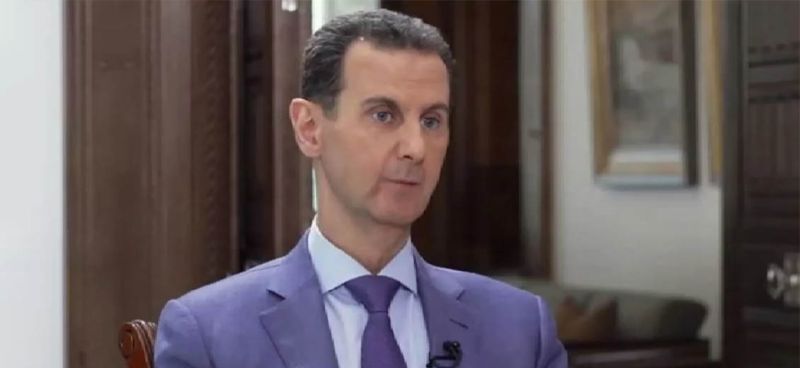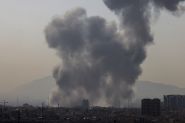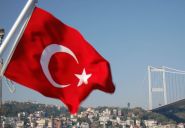- Home
- Middle East
- Embattled Assad Seeks Support Amid Aleppo Setback

Syrian President Bashar al-Assad ©Sky News
Syrian President Bashar al-Assad sought to shore up support from his allies Sunday, after a monitor said a shock rebel offensive saw government forces lose control of Aleppo for the first time since the start of the country's civil war.
The Islamist Hayat Tahrir al-Sham (HTS) group and allied factions now "control Aleppo city, except the neighbourhoods controlled by the Kurdish forces", Rami Abdel Rahman, head of the Britain-based Syrian Observatory for Human Rights, told AFP.
For the first time since the civil war started more than a decade ago, the country's second city "is out of control of Syrian regime forces", he said.
Iran's Foreign Minister Abbas Araghchi travelled to Damascus on Sunday to meet Assad, saying before his departure that Tehran would "firmly support the Syrian government and army", Iranian state media reported.
After the talks, Assad emphasised "the importance of the support of allies and friends in confronting foreign-backed terrorist attacks".
Araghchi landed late Sunday in Ankara, where he was expected to meet with Turkish Foreign Minister Hakan Fidan on Monday before talks with President Recep Tayyip Erdogan.
Syrian and Russian aircraft had staged deadly strikes in support of government forces earlier Sunday, according to the Observatory.
It said strikes killed at least 25 people and 23 others injured, in Aleppo and nine civilians in the rebel bastion of Idlib.
Russia's military confirmed it was helping Syrian government forces "repel terrorist aggression in the provinces of Idlib, Hama and Aleppo".
Before this offensive, HTS, led by Al-Qaeda's former Syria branch, already controlled swaths of the Idlib region, the last major rebel bastion in the northwest.
HTS also held parts of the neighbouring Aleppo, Hama and Latakia provinces.
It said Sunday the army strengthened its positions around Syria's fourth largest city Hama, about 230 kilometres (140 miles) south of Aleppo, and sent reinforcements to the north of the surrounding province.
Rebels have taken dozens of towns across the north, including Khan Sheikhun and Maaret al-Numan, roughly halfway between Aleppo and Hama, the Observatory said.
'Weak' government
Aaron Stein, president of the US-based Foreign Policy Research Institute, said "Russia's presence has thinned out considerably and quick reaction air strikes have limited utility".
He called the rebel advance "a reminder of how weak the regime is".
Aron Lund of the Century International think tank said: "Aleppo seems to be lost for the regime, and unless they manage to mount a counteroffensive soon, or unless Russia and Iran send much more support, I don't think the government will get it back."
"And a government without Aleppo is not really a functional government of Syria," he added.
The United States and its allies France, Germany and Britain called Sunday for "de-escalation" in Syria, and for the protection of civilians and infrastructure.
"The current escalation only underscores the urgent need for a Syrian-led political solution to the conflict, in line with UNSCR 2254," read a statement issued by the US State Department, referencing the 2015 UN resolution that endorsed a peace process in Syria.
The United States maintains hundreds of troops in northeast Syria as part of an anti-jihadist coalition.
China on Monday said it "supports Syria's efforts to maintain national security and stability", following the violent events in Aleppo. "China is willing to make positive efforts to prevent further deterioration of the situation in Syria," foreign ministry spokesman Lin Jian said at a regular press conference.
Parallel to the HTS offensive, pro-Turkey factions in northern Syria attacked Kurdish fighters in Aleppo province on Sunday, with the Observatory saying they seized the strategic town of Tal Rifaat and nearby villages.
UN envoy Geir Pedersen said the "latest developments pose severe risks to civilians and have serious implications for regional and international peace and security".
Layal Abou Rahal with AFP
Read more



Comments